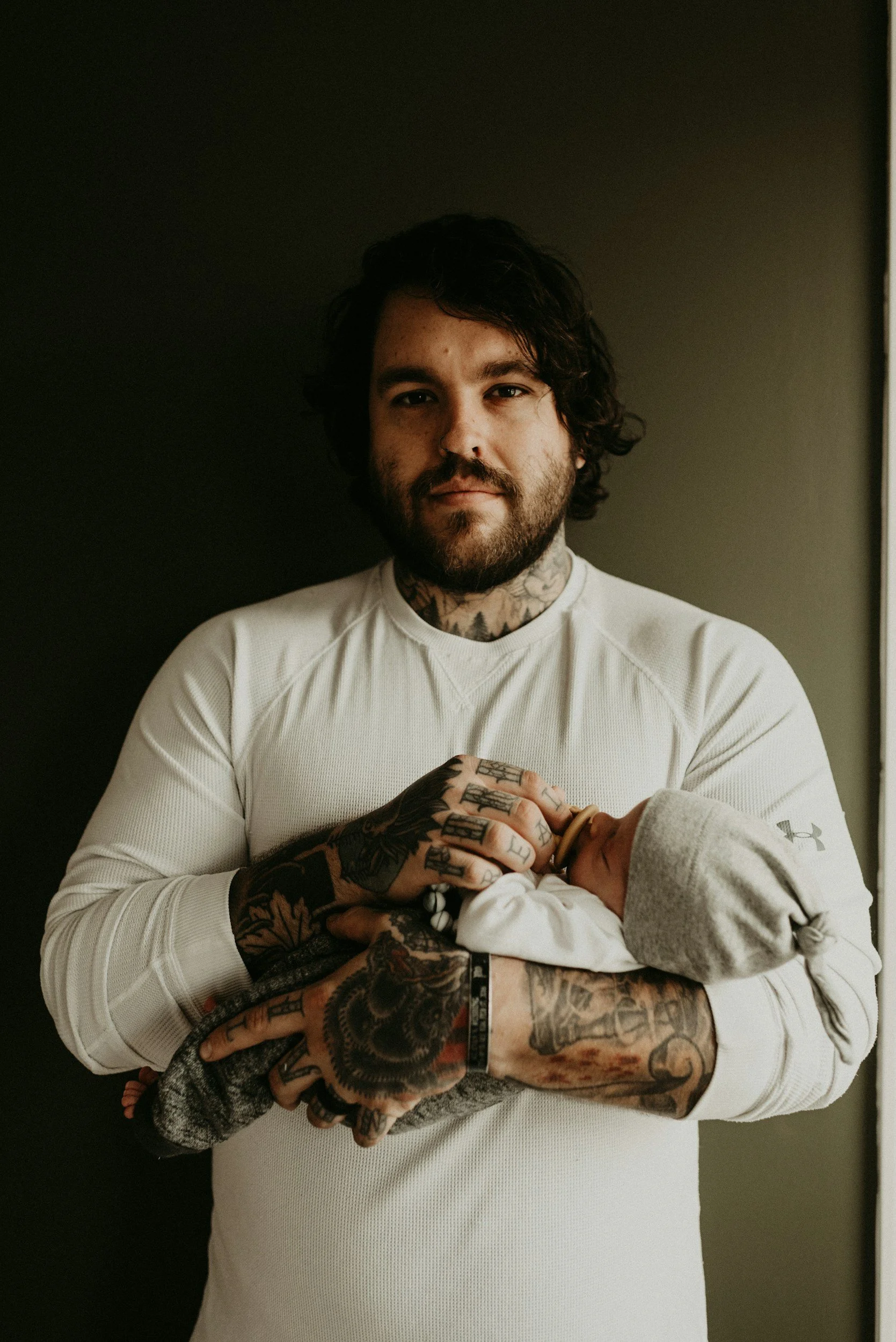The Mental Load of Fatherhood (and How to Carry It Like a Pro)
Start Your Journey With Us Now Call 304-270-8179 or Click HERE to text with us
Written By: Undefeated Healthcare Editorial Team
Reviewed By: Chase Butala MS LPC, LCPC
9/30/2025
By Undefeated Healthcare — where dads train for the climb, not just the selfie at the summit.
You run teams, hit numbers, and PR your deadlift. Then you add “Dad” to the résumé and suddenly you’re CTO of a 24/7 startup…with founders who don’t speak English yet and think sleep is optional. This article is your practical, slightly funny, data-backed field guide to the pressures fathers face, the mental health fallout, how it shifts across parenting stages, why single dads carry a different ruck, and how therapy + community keep you strong where it counts.
The Pressure Stack: Cultural, Social, Financial
Culturally: Modern fatherhood quietly expects you to be a high-earning provider and an emotionally fluent Brené Brown understudy. Research confirms dads face real perinatal mental health risks: about 5–10% of fathers experience depression and 5–15% anxiety in the perinatal window, often peaking a few months after the baby arrives.
Socially: Parents—dads included—are deeply worried about kids’ mental health (anxiety, depression, behavior issues), which cranks the baseline stress you carry.
Financially & time-wise: The average full-time worker logs about 8+ hours on workdays, and adults in homes with kids under 13 add significant “secondary childcare” time (you’re parenting while doing something else—email, dishes, gym). Translation: double-shift, minimal recovery.
How Stress Becomes Symptoms
Persistent load without recovery rewires your system: sleep debt + identity shift + financial pressure = anxiety, depressive symptoms, irritability/anger, burnout, and substance over-reliance. This isn’t just personal: parental mental health ties tightly to kids’ outcomes. Also, remember the wider context—49,316 lives were lost to suicide in the U.S. in 2023; men carry higher rates than women. Strength is getting help early.
The Usual Suspects: Common Mental Health Issues in Dads
Anxiety & hyper-vigilance (“What’s that sound? Is the toddler Googling my credit score?”)
Depressive symptoms (low drive, numbness, short fuse—often missed in men)
Anger/irritability that nukes connection at home
Sleep disruption & brain fog (living on airplane mode)
Substance overuse as a shortcut to “off”
Up to 1 in 10 dads experience perinatal depression; anxiety appears even more common in some cohorts. Risk spikes if your partner is struggling, too.
Fatherhood by Stage: How the Load Morphs
Pregnancy → 6 months: Role shock, sleep collapse, partner support pressure. (Known risk window for paternal anxiety/depression.)
Toddler years: Constant motion + boundary battles → exhaustion, irritability.
School age: Logistics Tetris; career ramps while kid commitments multiply.
Teen years: Identity clashes, grades, social media, college costs—worries intensify even if you don’t say them out loud.
Launch/empty nest: Purpose-whiplash; performance identity gets tested.
Single Dads: A Different Ruck, Heavier Hills
Single fathers are one of the fastest-growing caregiver groups in the U.S. (from ~1.7M in 1990 to ~3.3M in 2020). They face higher odds of depressive symptoms than partnered parents and encounter unique barriers (less support, stereotypes, schedule inflexibility).
Community Is an Unfair Advantage
Father involvement benefits kids—and engaged systems benefit fathers. When healthcare, workplaces, and communities include dads (screening, education, leave policies), outcomes improve for the whole family. Father-inclusive programs show measurable gains for parents and couples.
Stress Management That Actually Fits a High-Performer’s Life
1) Treat recovery like training.
Lock in a wind-down routine and phone-outside-the-bedroom rule.
Use 2–5 minute breath resets (box breathing or two “physiological sighs”) between meetings and kid handoffs.
2) Three Rocks Rule (one work, one home, one health).
Everything else is gravel. Protect your rocks on the calendar.
3) Minimum Effective Dose habits.
10 push-ups, 10 minutes of tidying, 5 minutes of journaling. Momentum beats “all or nothing.”
4) Anger early-warning system.
Name it (“I’m at an 8/10”), step out for 90 seconds (cold water on wrists helps), re-enter with one clear ask, not a TED Talk.
5) Money huddle, monthly.
60 minutes: cash flow snapshot, upcoming hits (childcare, sports fees), one automation tweak. Clarity lowers cortisol.
6) Build a “Dad Board.”
Three peers you can text “RED.” They reply with one check-in and one next step. No speeches, just signal and support.
7) New-baby playbook.
Rotate nights if possible; each partner gets one protected 90-minute sleep block.
Divide lanes (feeding/diapers vs. meals/laundry) and revisit weekly.
Both parents get outside time daily—non-negotiable.
8) Use the leave you have.
Paternity/parental leave is linked to better mental health for dads and smoother family adjustment. If paid leave isn’t available, strategize partial days or staggered time.
How Therapy Makes Fathers Stronger (Not “Softer”)
Think of therapy as performance coaching with clinical tools:
Load vs. values audit: Make your time match what matters.
Faster conflict recovery with your partner/kids; fewer blow-ups.
Evidence-based tools for sleep, anxiety, anger, and substance over-reliance.
Transition playbooks for newborns, job changes, teens, and launch.
If you or a loved one is in immediate crisis, call or text 988 in the U.S. right now. It exists for moments exactly like this.
Quick Data Hits (for the spreadsheet brain)
5–10% of fathers experience perinatal depression; 5–15% anxiety; risk often clusters a few months after birth.
Parents are highly concerned about kids’ mental health (anxiety, depression, behavior).
Work + secondary childcare stack real hours; time pressure is not “in your head.”
49,316 suicide deaths in 2023; men have higher rates—another reason early help matters.
Single fathers increased to ~3.3M by 2020 and face higher odds of depression vs. partnered parents.
The Undefeated Move
You don’t need to be perfect; you need a plan and a team. At Undefeated Healthcare, we work with high-performing dads at every stage—expecting, newborn chaos, teen turbulence, and beyond. We’ll help you build a durable system for stress, sleep, communication, and purpose so you can carry the load without losing yourself.
Ready to feel strong on the mountain you’re already climbing? Let’s get to work.


